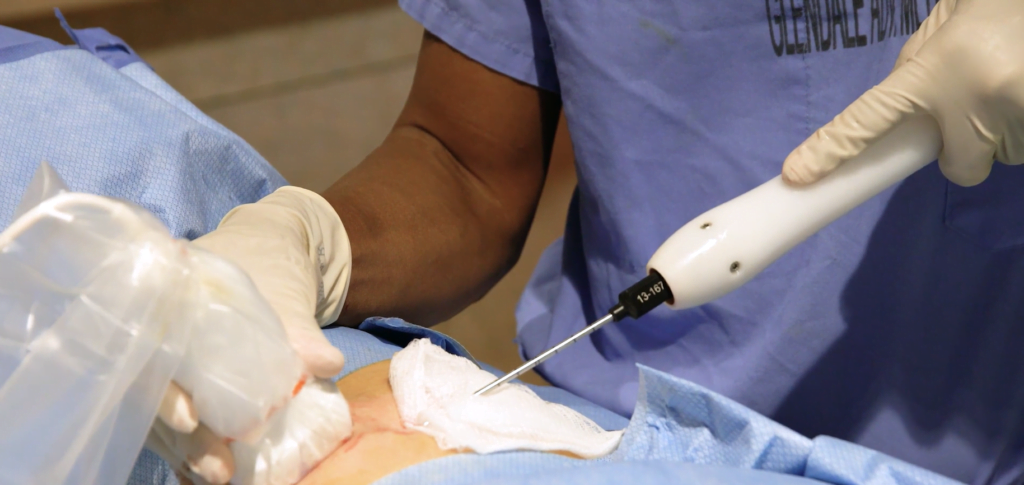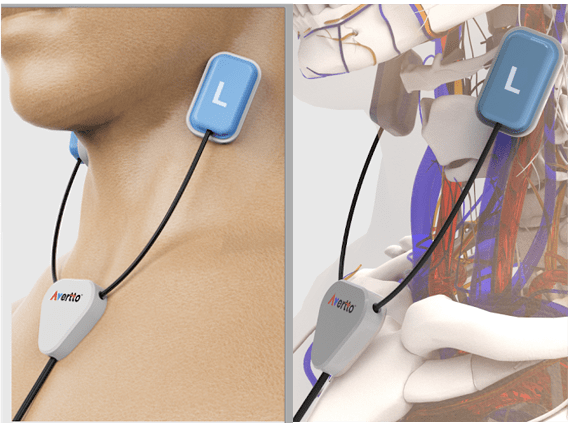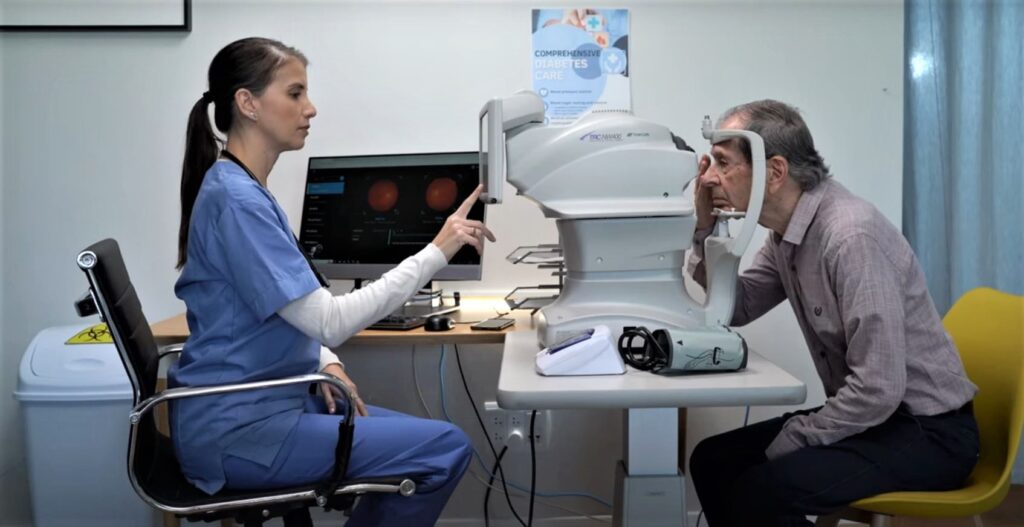The Startup Nation is world-famous for its innovation in a wide range of fields, from cybersecurity that protects from hackers to awe-inspiring defense tech on the ground and in the air that keeps us all safer.
But for many who find themselves facing the greatest battle of all – for their health – Israeli companies have developed truly life-changing medical technology.
We take a look at some of the most significant innovations, which have the potential to really make the world a better and healthier place.
Freezing Out Cancer
IceCure Medical’s ProSense system does what the name of the company suggests – freezing tumors as a treatment for early-stage breast, lung, liver and kidney cancers.
Doctors insert a small needle into the tumor, using liquid nitrogen to freeze it to temperatures as low as -170°C, without harming the healthy tissue that surrounds it. The cells die as they thaw, and are then absorbed by the body.
The system can be used in a doctor’s own surgery with no invasive treatment or general anesthetic, involving no hospitalization or tissue removal that can cause scarring. The ice ball also has an analgesic effect, providing additional numbing and pain relief to the treated area.
Today, ProSense currently has regulatory approval in 15 countries, including Canada, the United States and China.

Wheelchair That Puts Users Back On Their Feet
The wife of inventor and entrepreneur Dr. Amit Goffer cried when she saw him standing on his own feet for the first time, after almost two decades in a wheelchair, thanks to his UpnRide development.
The unique mobility device gives users the freedom to sit, stand and travel in an upright position, and can lift the user from a sitting to a standing position – and back again – unaided.
Goffer had lost the use of both legs and some movement in his arms when he broke his neck in an ATV accident in 1997, He had already invented the “bionic” ReWalk, a wearable device that allows paraplegics to walk again, and then began developing a solution for people who did not have the upper-body function it requires.
And unlike other similar solutions on the market, FDA-approved UpnRide’s sophisticated technology allows the user to travel upright at 4km per hour regardless of terrain, tackling almost all urban environments. Click here for more

Delivering An IVF Baby Boom
Israel loves babies. It is the only developed nation on the planet with an above-average number of births per woman and is by far the world leader in IVF procedures.
So it is hardly surprising that a major revolution in the efficacy of IVF treatments should be Israeli.
Tel Aviv-based startup AIVF uses artificial intelligence to select the embryo with the best chance of being successfully implanted into a woman’s womb.
Using massive amounts of biological data, the EMA platform was trained to understand developmental biology in order to detect milestones and parameters in a developing embryo.
The founders created the platform based on the premise that AI would be better than the human eye at the “crucial point“ of evaluating embryos in the lab and determining which of a woman’s fertilized eggs was most likely to be viable.

Tiny Camera Is Canceling Colonoscopies
Perhaps the most famous of Israeli medtech developments, the PillCam is a non-invasive method of detecting disorders in the gastrointestinal (GI) tract.
Developed by Given Imaging (today owned by American multinational Medtronic), the pill-sized camera is ingested by patients, which allows physicians to visualize the esophagus, colon and areas of the small intestine. This is vital for detecting diseases including Crohn’s, obscure gastrointestinal bleeding (OGIB) and even esophageal cancer.
After a 10-hour fast, patients swallow the PillCam that then passes naturally through the digestive system over an eight-hour period. During that time PillCam transmits approximately 50,000 images, which can then be downloaded and reviewed by the physician.
The pill also costs around $800, making it far cheaper than a colonoscopy that can come with a price tag of more than $4,000 and is often far more uncomfortable.
Since acquiring Given Imaging, Medtronic has opened development centers in Jerusalem and Yokneam, where it employs around 750 people.

Sign up for our free weekly newsletter
SubscribePredicting Strokes With Sensors
Prevention, as the saying goes, is better than a cure, and Avertto’s groundbreaking wearable device alerts people to the dangers of an imminent stroke before it even happens.
The first-ever device of its kind uses cutting-edge pulse wave analysis technology to monitor changes in the blood flow to the brain through the carotid artery, allowing immediate medical steps to be taken to mitigate the risk.
Strokes are most commonly caused by a clot blocking the essential supply of blood to the brain, and according to the World Health Organization are the second leading cause of death and the leading cause of disability across the globe.
Avertto’s device uses sensors placed over the carotid arteries, the two major blood vessels on either side of the neck that provide the blood supply to the brain.
A lower blood flow level indicates potential blockages in the carotid arteries. The device’s AI-based alert system detects these changes and within seconds notifies the wearer, first responders and healthcare providers.

AI Platform Makes Snappy Work Of Diabetic Eye Test
A store-bought camera and a revolutionary AI platform have made simple work of one of the seemingly endless list of tests required by diabetics to monitor their health – with minimum discomfort and in a convenient setting.
AEYE Health’s proprietary software analyzes an image of the eye for diabetic retinopathy – damage to the blood vessels in the retina that can lead to blindness – without having to dilate the pupil in an uncomfortable and incapacitating procedure.
Building the platform, which uses machine learning, involved collecting and analyzing massive amounts of data in order to understand how to differentiate between patients whose eyes needed no immediate further care and those who required a referral to an ophthalmologist.
The method can be used by a family doctor at a pharmacy or even in a patient’s own home, and yields immediate results, avoiding the discomfort and inconvenience that deters many people from having the crucial annual test.
So remarkable is the development that AEYE Health CEO Zack Dvey-Aharon was recently named by TIME Magazine as one of the 100 most influential people in artificial intelligence for 2024.

Mapping Endometriosis Without Surgery
Women suffering from endometriosis – when tissue similar to the womb lining grows as “lesions” on other parts of the body – have traditionally had to undergo painful and invasive surgery to properly assess the extent of the debilitating disease.
So challenging has been the detection of the disease, Yale Medicine says that it takes between four to 11 years from the onset of symptoms to diagnosis and treatment.
But femtech startup EndoCure has developed an AI-powered ultrasound platform for comprehensive mapping of the lesions, leading to quicker diagnosis and customized treatment options for the one in 10 women of reproductive age worldwide who suffer from endometriosis.
The lesions appear primarily on the ovaries, bowel and other areas of the pelvic region, causing severe pain and affecting fertility.
EndoCure’s system integrates with standard ultrasound equipment, streaming the data using its own software as the area is scanned. It produces 3D imaging that is able to detect lesions smaller than one millimeter, which are extremely hard for current systems to spot.

An honorable mention also goes to femtech startup Gynica, which has developed a treatment for endometriosis with cannabinoids, the main component in the cannabis plant.
The startup’s proprietary slow-release suppository makes use of cannabinoids’ anti-inflammatory and analgesic properties, as well as their ability to deter the movement of the endometrium cells to different parts of the body in a three-fold treatment that tackles different aspects of endometriosis. Click here for more
Related posts

Harnessing Our Own Bodies For Side Effect-Free Weight Loss

Missing Protein Could Unlock Treatment For Aggressive Lung Cancer

No Smoking! Startup's Tiny Answer To Safer Medical Cannabis




Facebook comments